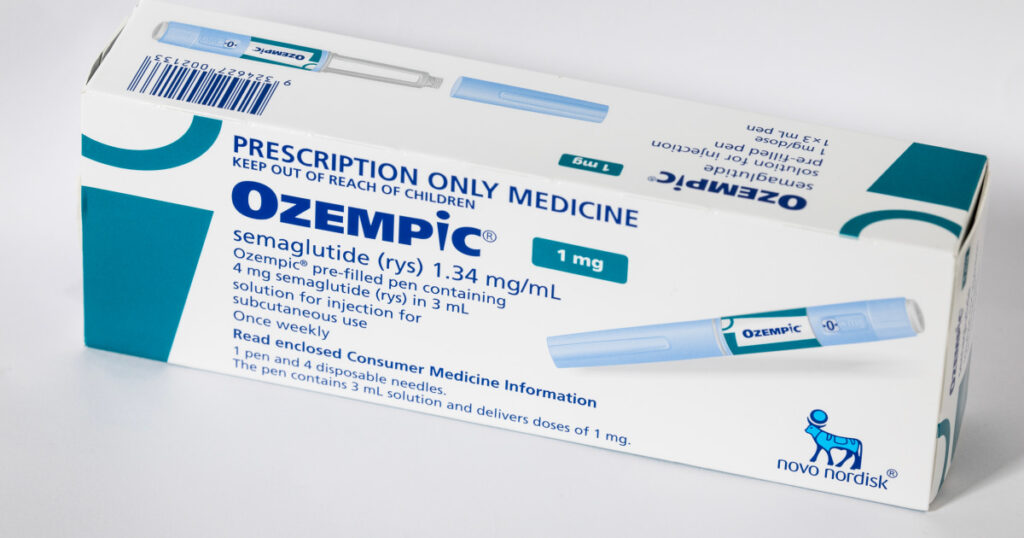The CEO of Novo Nordisk has defended the high prices of Ozempic and Wegovi in the US, saying the blockbuster drugs are ultimately saving taxpayers money on obesity-related costs.
“If you just look at the cost of obesity in the United States, it’s a disease that costs Americans more than $400 billion a year,” Lars Fluagaard Jorgensen said in an interview on “NBC Nightly News.” “And we’re actually offering a product that helps to alleviate that cost burden.”
Tune in to “NBC Nightly News” tonight at 6:30 PM ET/5:30 PM CST for more details.
Speaking to NBC News before the “quiet period” before the company’s last earnings report, Jorgensen said accusations that the company was operating as a drug cartel were “baseless.”
His comments come ahead of a closely-anticipated Senate committee hearing in September where he is scheduled to testify about the drug company’s U.S. pricing of its wildly popular diabetes and weight-loss drugs.
Vermont Sen. Bernie Sanders, chairman of the Health, Education, Labor and Pensions Committee, told NBC News in June that he plans to ask Jorgensen why drug companies are selling Ozempic and Vigovi in the U.S. for 10 to 15 times more than in other countries. Novo Nordisk sells Vigovi for about $1,300 a month in the U.S., but it can be purchased for $186 a month in Denmark, $137 in Germany and $92 in the United Kingdom, according to the HELP committee report.
“It’s clear that Novo Nordisk is deceiving the American people,” Sanders said.
The costs of obesity-related care in the United States are substantial.
A report released last year by KFF, a nonprofit that studies health policy issues, found that in 2021, overweight or obese people with employer-based health insurance had average annual medical costs of $12,588, more than double the $4,699 of people who were not overweight or obese. Overweight or obese people also had higher out-of-pocket costs, averaging $1,487 compared with $698 for people who were not overweight or obese.
Still, Stacey Ducetzina, a health policy professor at Vanderbilt University in Nashville, Tennessee, said that at the current prices of Ozempic and Wegovi, the savings from reduced copayments for obesity-related treatments would not be enough to make up for the large increases in drug costs.
“For many people, these drugs may be very good options for improving their health, but they are unlikely to reduce overall spending,” Ducetina said. “In general, prices would need to fall substantially for these drugs to have any chance of generating overall savings in health care costs.”
A complex healthcare system
Jorgensen said he “voluntarily came forward” to speak to the committee about the costs of Ozempic and Wegobi during a September hearing. His announcement that he would do so came three days after Sanders threatened to hold a vote to subpoena the company’s president, Doug Langa.
Jorgensen said she plans to talk about “the complexities of the U.S. health care system that we are part of but cannot change.”
“That requires policy change,” he said, blaming insurers and pharmacy benefit managers (PBMs) for the high out-of-pocket costs patients pay for drugs.
PBMs work with insurers to negotiate rebates and discounted prices from drug companies in exchange for including drugs in their plans, but as PBMs consolidate and gain more influence over which drugs patients get covered, experts say they may be inflating drug costs.
In July, the Federal Trade Commission released an interim report on how PBMs are driving up costs for patients.
“We know that some patients are underinsured,” Jorgensen said, “and when they don’t have insurance, it can be hard to afford their medications. For those people, we have a patient assistance program that we try to help.”
Jorgensen also said the U.S. needs to “have a discussion about what the value of these medicines is” for patients.
Cynthia Cox, vice president and director of the Affordable Care Act program at KFF, said these drugs can prevent and reduce many obesity-related illnesses, but the costs of the drugs remain high and it’s unclear how long people need to keep taking them to maintain weight loss and health improvements.
“The widespread use of these drugs for weight loss is still relatively new, so we don’t know if there’s enough long-term data to fully weigh the costs and benefits,” Cox said.



